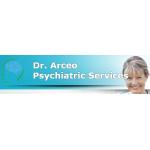Introduction
Psychotropic medications for children and the development of an effective treatment plan for Obsessive-Compulsive Disorder (OCD) are important aspects of pediatric mental health care. While medications can be a valuable component of treatment, they are often used in conjunction with various therapeutic strategies to manage OCD. In this article, we'll explore the considerations involved in using psychotropic medications for children and outline an OCD treatment plan.
Psychotropic Medications for Children
Psychotropic medications are drugs that affect mood, thought processes, and behavior. They are sometimes prescribed to children when they have mental health conditions that are not effectively managed by therapy alone. Common psychotropic medications for children include:
Selective Serotonin Reuptake Inhibitors (SSRIs): SSRIs, such as fluoxetine or sertraline, are often prescribed for children with OCD. These medications can help reduce the intensity and frequency of obsessive thoughts and compulsive behaviors.
Atypical Antipsychotics: Sometimes, medications like risperidone or aripiprazole are prescribed when OCD symptoms are severe, or when there are comorbid conditions like tics or aggression.
Stimulants: Stimulants like methylphenidate or amphetamine may be used when comorbid ADHD is present alongside OCD.
It's crucial for parents and healthcare providers to consider the potential benefits and risks of using psychotropic medications for children. Medication should be administered under the close supervision of a qualified healthcare professional who will monitor the child's progress and adjust treatment as needed.
An effective treatment plan for Obsessive-Compulsive Disorder typically involves a combination of therapies and strategies. Here's a general outline of an OCD treatment plan:
Psychotherapy: Cognitive-Behavioral Therapy (CBT) is the primary psychotherapy used to treat OCD. Exposure and Response Prevention (ERP) is a specific type of CBT that gradually exposes individuals to their obsessive fears and helps them resist the compulsions. This therapy is effective for both children and adults with OCD.
Medication: As mentioned earlier, SSRIs are commonly used in the treatment of OCD, especially for children and adolescents. These medications can help reduce the intensity of obsessive thoughts and compulsive behaviors.
Family Involvement: In the case of children, family members often play a crucial role in the treatment process. They can provide support, encouragement, and reinforcement of therapeutic strategies at home.
Lifestyle and Coping Strategies: Encourage the development of healthy coping strategies, stress management techniques, and self-care practices to complement the formal treatment plan.
Ongoing Support: Regular follow-up with a mental health professional is essential to monitor progress and make necessary adjustments to the treatment plan.
Conclusion
Psychotropic medications for children can be a valuable tool when managing mental health conditions like OCD, but they should be part of a comprehensive treatment plan. In the case of OCD, a combination of cognitive-behavioral therapy, medication, family support, and lifestyle strategies can provide the best outcomes. It's crucial for parents and caregivers to work closely with healthcare providers to ensure the safety and well-being of children undergoing treatment for OCD. With the right approach, children with OCD can learn to manage their symptoms and lead fulfilling lives.
